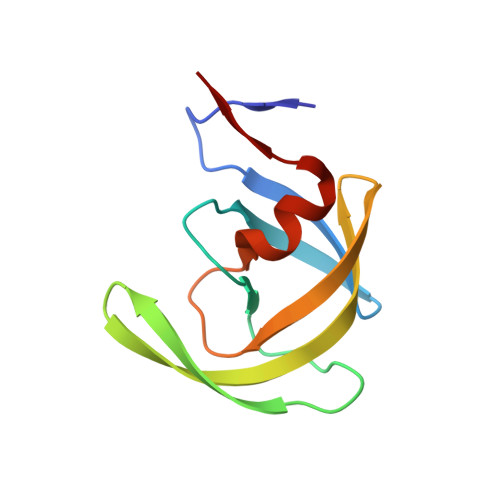Discovery of MK-8718, an HIV Protease Inhibitor Containing a Novel Morpholine Aspartate Binding Group.
Bungard, C.J., Williams, P.D., Ballard, J.E., Bennett, D.J., Beaulieu, C., Bahnck-Teets, C., Carroll, S.S., Chang, R.K., Dubost, D.C., Fay, J.F., Diamond, T.L., Greshock, T.J., Hao, L., Holloway, M.K., Felock, P.J., Gesell, J.J., Su, H.P., Manikowski, J.J., McKay, D.J., Miller, M., Min, X., Molinaro, C., Moradei, O.M., Nantermet, P.G., Nadeau, C., Sanchez, R.I., Satyanarayana, T., Shipe, W.D., Singh, S.K., Truong, V.L., Vijayasaradhi, S., Wiscount, C.M., Vacca, J.P., Crane, S.N., McCauley, J.A.(2016) ACS Med Chem Lett 7: 702-707
- PubMed: 27437081
- DOI: https://doi.org/10.1021/acsmedchemlett.6b00135
- Primary Citation of Related Structures:
5IVQ, 5IVR, 5IVS, 5IVT - PubMed Abstract:
A novel HIV protease inhibitor was designed using a morpholine core as the aspartate binding group. Analysis of the crystal structure of the initial lead bound to HIV protease enabled optimization of enzyme potency and antiviral activity. This afforded a series of potent orally bioavailable inhibitors of which MK-8718 was identified as a compound with a favorable overall profile.
- Merck Research Laboratories , 770 Sumneytown Pike, PO Box 4, West Point, Pennsylvania 19486, United States.
Organizational Affiliation:


















